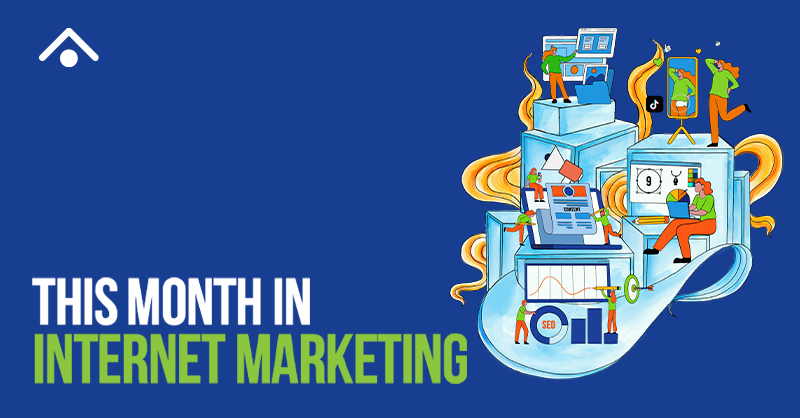What to Expect for 2020–Brace Yourself While There’s Still Time
The methods of online marketing change faster than most people expect. There’s good reason for this. The psychology behind our campaigns is what puts a marketer steps ahead of the masses. We don’t speak of people as if void in understanding or emotionless, without feelings or without a sense of humor. We speak of the consumer as a formidable opponent. If you’re not measuring the shift in how they buy, then you’ll fail to grab their attention.
Attention spans are not as short as so many blogs would have you to believe. The consumer is inspired to read thousands of words when they find things that interest them. This is our work. Understanding the consumer and the changes they’re experiencing gives us the first means by which we make a real connection. 2020 is bringing new, wonderful sciences into the world, so let’s look at those that are influencing digital marketing.
Technological and Behavioral Adaptation
What you’ll find on this list of digital marketing trends for 2020 are actionable steps—with specific examples. There’s one process, however, our first one, that you have to play by ear. No one can foresee all of the technologies that are waiting to be revealed. We, as marketers who get results, have to actively watch the market. Look at new technology and ask a simple question. “How does it change the way that we’re going to speak?”
Trends and How to Leverage Them:
There’s no “personal” advice to give you in regards to trends. By looking at the world from a marketer’s perspective, however, we see that there’s a need in understanding the fads that are bewildering the world. Don’t ignore trends because it’s 2020. People will still rely on the herd mentality and become curious about what everyone else is doing.
Surprise, the Consumer Knows More and yet Even Less:
SEO company Singapore is more professional, and surprisingly this will make the consumer more reliant on those technologies. This is a great opportunity to add data science into your own message. Look for nuggets of inspiring information to share, for it’s clear; the consumer wants help when learning about the world around them.

Hypothesis Analysis and Data Collection
The analytical tools of 2020 rely on “hypothesis analysis.” Data collection now centers around the comparison of data—not just collecting it. Data, itself, isn’t enough; you must process it to create a hypothesis, and computers are doing this for us.
Data Pairs:
Hypothesis analysis is only effective when at least two sources of data are collected. We’re no longer asking detailed questions about a single sample size. We’re asking those questions once we’ve developed a secondary sample size to include in the evaluation.
Analytical Comparisons:
An additional stage to hypothesis analysis is data comparison. For example, time could be a comparison—where one set of data is compared to metrics from years ago.
Forming Actions—Not Just Conditions:
The ultimate advantage of hypothesis analysis are the actions that we can derive from it. Your software is no longer happy with just demographics. As we’ll see in a bit, creating actions based on collected data is the new age of analytical science.
Artificial Intelligence and What it Means
It’s OK to have skepticism about artificial intelligence, but the truth is that you’re now too late. The advances of AI are setting the standards for 2020’s marketing trends. Here are some points you need to cover:
Decision Making:
Artificial intelligence is finding more work because it helps us to make decisions. The technology operates 24/7–without being rebooted or found in need of rest. This is crucial, for we can’t, being that we’re human, effectively respond to our leads in all times and places. Our AI bots work non-stop to respond to our leads and to increase our conversions.
Automation:
Automation, which works with the “learning” of artificial intelligence, is useful because it leverages conditions. For example, when a certain condition is met, a certain, predetermined action is taken. Artificial intelligence fine tunes what gets automated and has the sense to change our automation based on consumer activity.
Engagement and Experiential Marketing
Experiential marketing creates what we call differentiation. Businesses need to stand out from their competitors, but the expanding tools of digital technology can make brands seem identical. Digital has the potential of killing real, human relationships. Simply put, brands aren’t face to face with their leads, but experiential marketing is considered the ideal solution. Marketers are using real experiences as a strategic edge over technology.

Real Life Among an Artificial World:
Consumers might not understand how AI fully works, but they know that it’s being used. What they aren't overly defensive about are campaigns that create in-person experiences. Put sample products into their hands for an experience they won’t forget.
Experiences and Product Confirmations:
The experience you create has to be centered around your product. Marketers often look to the blueprint that Pepsi created for its highly successful “Pepsi Challenge.”
Events—The Core of Experiential Marketing:
Create your own event or join the many conventions passing through your city. Experiential marketing is most impactful when you challenge the doubts that people have. Dare them to disprove something that you’re confident your product can do.
Video: The Multidimensional Content Form
Video, when being measured as a marketing tool, built its reputation just a few years ago. Take advantage of it, for Google is ranking video higher in search results.
Since Many Would Rather Watch Film:
Online users prefer video content while at least half of them are searching for it specifically.
Every Outlet and with all Mediums:
You have no shortage of creative mediums to try. Film is effective when displaying visual shots, graphs, text, audio and real-live people to connect with.
Costs are Lower and Methods are Simpler:
The costs to produce outstanding film content is lowering, and this gives small businesses broader access to the video market.





